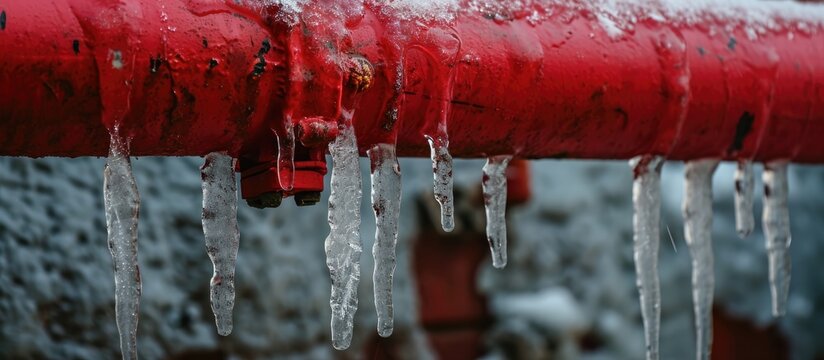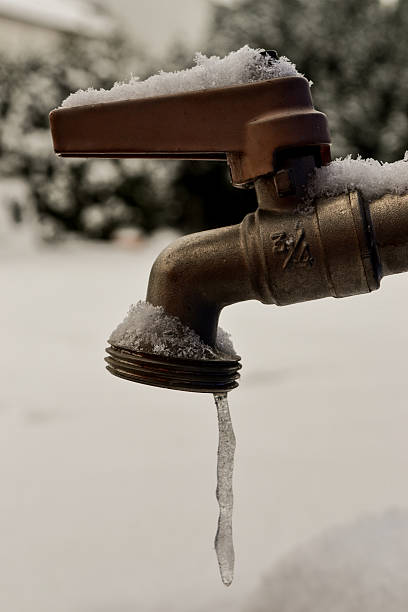Avoiding Frozen Plumbing in Winter: Critical Tips
Avoiding Frozen Plumbing in Winter: Critical Tips
Blog Article
Were you trying to find ideas around 6 Ways to Prevent Frozen Pipes?

Winter can wreak havoc on your plumbing, particularly by freezing pipes. Here's how to prevent it from happening and what to do if it does.
Introduction
As temperatures decline, the threat of icy pipes increases, potentially leading to pricey fixings and water damages. Comprehending how to stop frozen pipes is crucial for home owners in chilly climates.
Avoidance Tips
Insulating at risk pipes
Cover pipes in insulation sleeves or use warmth tape to shield them from freezing temperatures. Concentrate on pipes in unheated or exterior areas of the home.
Home heating techniques
Maintain indoor rooms effectively heated, particularly locations with plumbing. Open cupboard doors to permit cozy air to circulate around pipes under sinks.
Exactly how to determine icy pipelines
Seek decreased water flow from faucets, unusual odors or noises from pipes, and noticeable frost on exposed pipelines.
Long-Term Solutions
Architectural changes
Take into consideration rerouting pipelines far from exterior walls or unheated areas. Include added insulation to attic rooms, basements, and crawl spaces.
Upgrading insulation
Buy high-grade insulation for pipelines, attics, and wall surfaces. Correct insulation assists maintain regular temperatures and reduces the danger of frozen pipelines.
Safeguarding Outdoor Pipes
Yard hoses and exterior faucets
Separate and drain yard hoses prior to winter. Set up frost-proof spigots or cover exterior faucets with protected caps.
Understanding Frozen Pipelines
What triggers pipes to ice up?
Pipelines freeze when revealed to temperature levels listed below 32 ° F (0 ° C) for expanded periods. As water inside the pipelines ices up, it expands, putting pressure on the pipeline wall surfaces and possibly creating them to burst.
Risks and damages
Frozen pipes can result in water system disturbances, residential or commercial property damage, and costly repair work. Burst pipes can flooding homes and create substantial architectural damage.
Signs of Frozen Piping
Recognizing frozen pipes early can stop them from bursting.
What to Do If Your Pipelines Freeze
Immediate actions to take
If you presume frozen pipelines, maintain faucets open to relieve stress as the ice thaws. Use a hairdryer or towels taken in hot water to thaw pipelines slowly.
Conclusion
Protecting against frozen pipes needs proactive procedures and quick actions. By recognizing the causes, indications, and safety nets, property owners can protect their plumbing throughout winter.
Helpful Tips to Prevent Frozen Pipes this Winter
UNDERSTANDING THE BASICS: WHY PIPES FREEZE AND WHY IT’S A PROBLEM
Water freezing inside pipes is common during the winter months, but understanding why pipes freeze, and the potential problems it can cause is crucial in preventing such incidents. This section will delve into the basics of why pipes freeze and the associated problems that may arise.
THE SCIENCE BEHIND FROZEN PIPES
When water reaches freezing temperatures, it undergoes a physical transformation and solidifies into ice. This expansion of water as it freezes is the primary reason pipes can burst. As the water inside the pipe freezes, it expands, creating immense pressure on the walls. If the pressure becomes too great, the pipe can crack or rupture, leading to leaks and water damage.
FACTORS THAT CONTRIBUTE TO PIPE FREEZING
Low Temperatures: Extremely cold weather, especially below freezing, increases the risk of pipes freezing. Uninsulated or Poorly Insulated Pipes: Pipes located in unheated areas, such as basements, crawl spaces, or attics, are more prone to freezing. Insufficient insulation or lack of insulation altogether exacerbates the problem. Exterior Wall Exposure: Pipes running along exterior walls are susceptible to freezing as they encounter colder temperatures outside. Lack of Heating or Temperature Regulation: Inadequate heating or inconsistent temperature control in your home can contribute to frozen pipes. PROBLEMS CAUSED BY FROZEN PIPES
- Pipe Bursting: As mentioned earlier, the expansion of water as it freezes can cause pipes to burst, resulting in significant water damage.
- Water Damage: When pipes burst, it can lead to flooding and water damage to your property, including walls, ceilings, flooring, and personal belongings.
- Structural Damage: Prolonged exposure to water from burst pipes can compromise the structural integrity of your home, leading to costly repairs.
- Mold and Mildew Growth: Excess moisture from water damage can create a favorable environment for mold and mildew growth, posing health risks to occupants.
- Disrupted Water Supply: Frozen pipes can also result in a complete or partial loss of water supply until the issue is resolved.
WHY CERTAIN PIPES ARE MORE PRONE TO FREEZING
- Location: Pipes located in unheated or poorly insulated areas, such as basements, crawl spaces, attics, or exterior walls, are at higher risk of freezing.
- Exterior Pipes: Outdoor pipes, such as those used for irrigation or exposed plumbing, are particularly vulnerable to freezing as they are directly exposed to the elements.
- Supply Lines: Pipes that carry water from the main water supply into your home, including the main water line, are critical to protect as freezing in these lines can affect your entire plumbing system.
- Underground Pipes: Pipes buried underground, such as those connected to sprinkler systems or outdoor faucets, can be susceptible to freezing if not properly insulated.
https://busybusy.com/blog/helpful-tips-to-prevent-frozen-pipes-this-winter/

Do you like reading up on How to prepare your home plumbing for winter weather? Create a remark down below. We'd be pleased to find out your suggestions about this write-up. We are looking forward that you visit us again in the future. Do you know about anybody else who is curious about the topic? Take a moment to promote it. Many thanks for going through it.
Click Here Report this page